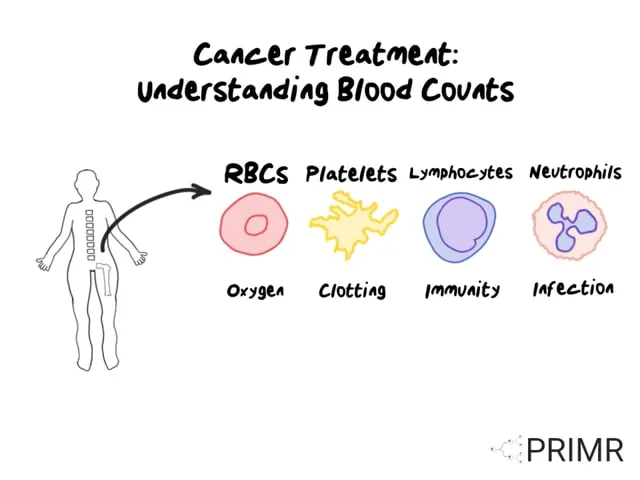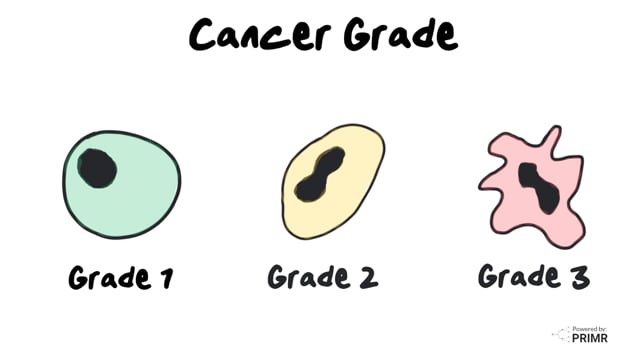Neutropenia During Chemotherapy
Patients getting chemotherapy may at some point develop neutropenia, a condition that places them at risk for infection.
In this video, we review what neutrophils do and how patients can prevent getting infections if they experience neutropenia from chemotherapy.
Read the full video transcript below:
Neutropenia is a condition in which one of the cell types that's responsible for fighting infection is low. Patients who get chemotherapy can experience this.
Chemotherapy drugs are infused into the bloodstream and they have access to every part of the body, including the bone marrow, which is where most of our blood cells are created.
There are many different types of blood cells, and each one has a unique function. Red blood cells are responsible for transporting oxygen, platelets are involved in clotting and stopping bleeding, lymphocytes are required to establish immunity against infection, and finally, neutrophils are one of the first lines of defense against infection in the body.
In this video, we'll talk more about what neutrophils do and what you can do as a patient to prevent getting infections if you experience neutropenia from chemotherapy.
Neutrophils play a key role in our defense against infection. They patrol for invaders like bacteria. When neutrophils encounter bacteria, they go on the attack. They can eat bacteria, release toxic chemicals that can destroy the bacteria, or even send out tentacles that can disrupt the replication of bacteria in your body.
We can count the amount of neutrophils that are circulating in your blood with a simple blood test called a CBC. Prior to starting chemotherapy, the neutrophil count is usually in the normal range, but as treatment progresses, the neutrophil count can decline. Your care team will continue to monitor your neutrophil count. If it's on the decline, neutropenia occurs when the count declines below a specified threshold. If this happens, your doctors may delay your next treatment and may even prescribe medication to promote more neutrophil production. Once the neutrophil count increases, treatment may be resumed.
Here are some basic facts about neutropenia: patients experiencing neutropenia are at an increased risk for developing infections. About half of all patients who get chemotherapy will, at some point, develop neutropenia. The good news is there are many things that you can do to prevent infection.
Patients with neutropenia should have heightened awareness around hand and oral hygiene. That means washing your hands with soap and water for at least 20 seconds and being sure to brush your teeth at least twice a day. Care should be taken in the kitchen as well to be sure that all dishes and utensils are washed thoroughly. All perishable foods, especially meats, should be refrigerated according to recommendations and cooked thoroughly. Staying up on recommended vaccinations can also prevent infections with patients with neutropenia.
Here's a list of some things you can avoid to reduce the risk of infection: separate personal items like toothbrushes and razors from other members of your household, avoid getting manicures and pedicures, avoid anal intercourse, do not use tampons, avoid large crowds wherever possible, avoid sick contacts and visiting with people who you know to be sick with a contagious illness, and avoid unnecessary exposures by avoiding handling soil or cleaning up after pet waste.
The most common signs of infection include fever over 100.4°F, sore throat, cough or shortness of breath, pain urinating, chills or sweats, red inflamed skin or belly pain, and vomiting.
This is not medical advice. Talk to your doctor before making a medical decision.




.jpeg)
.png)






